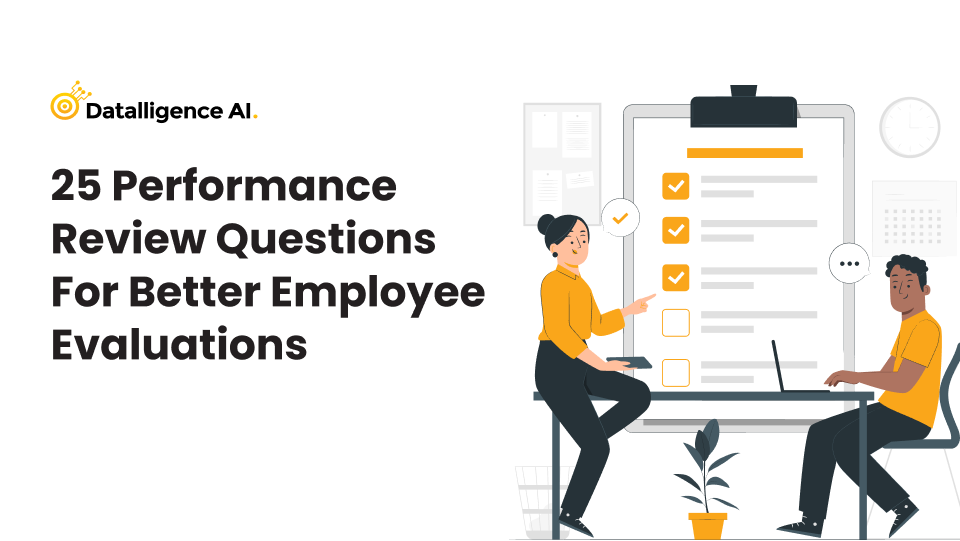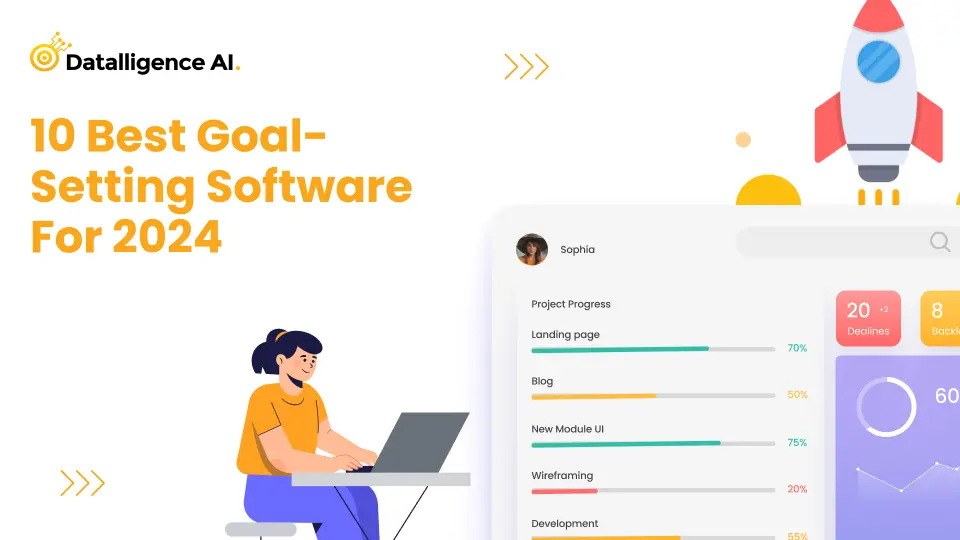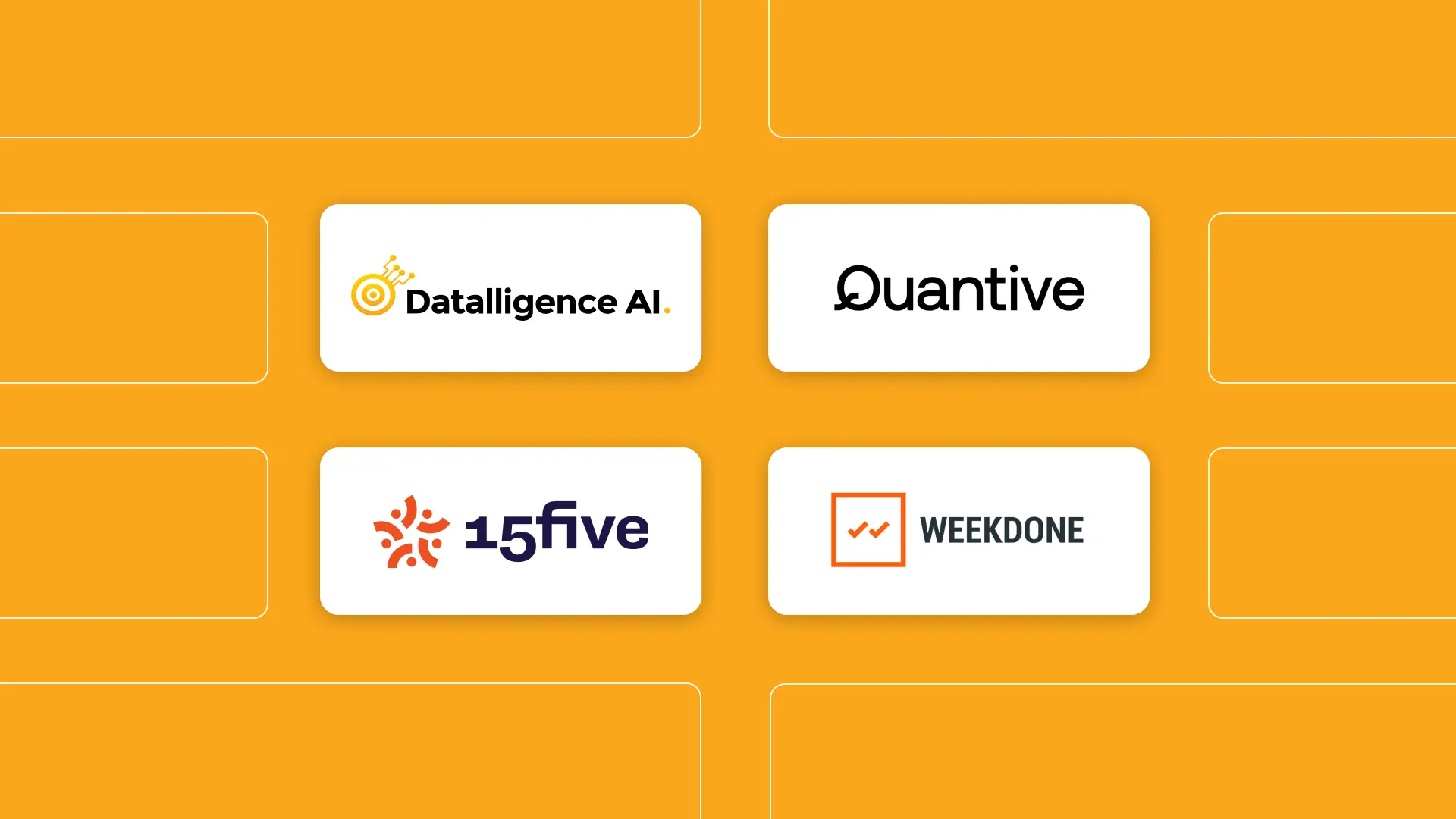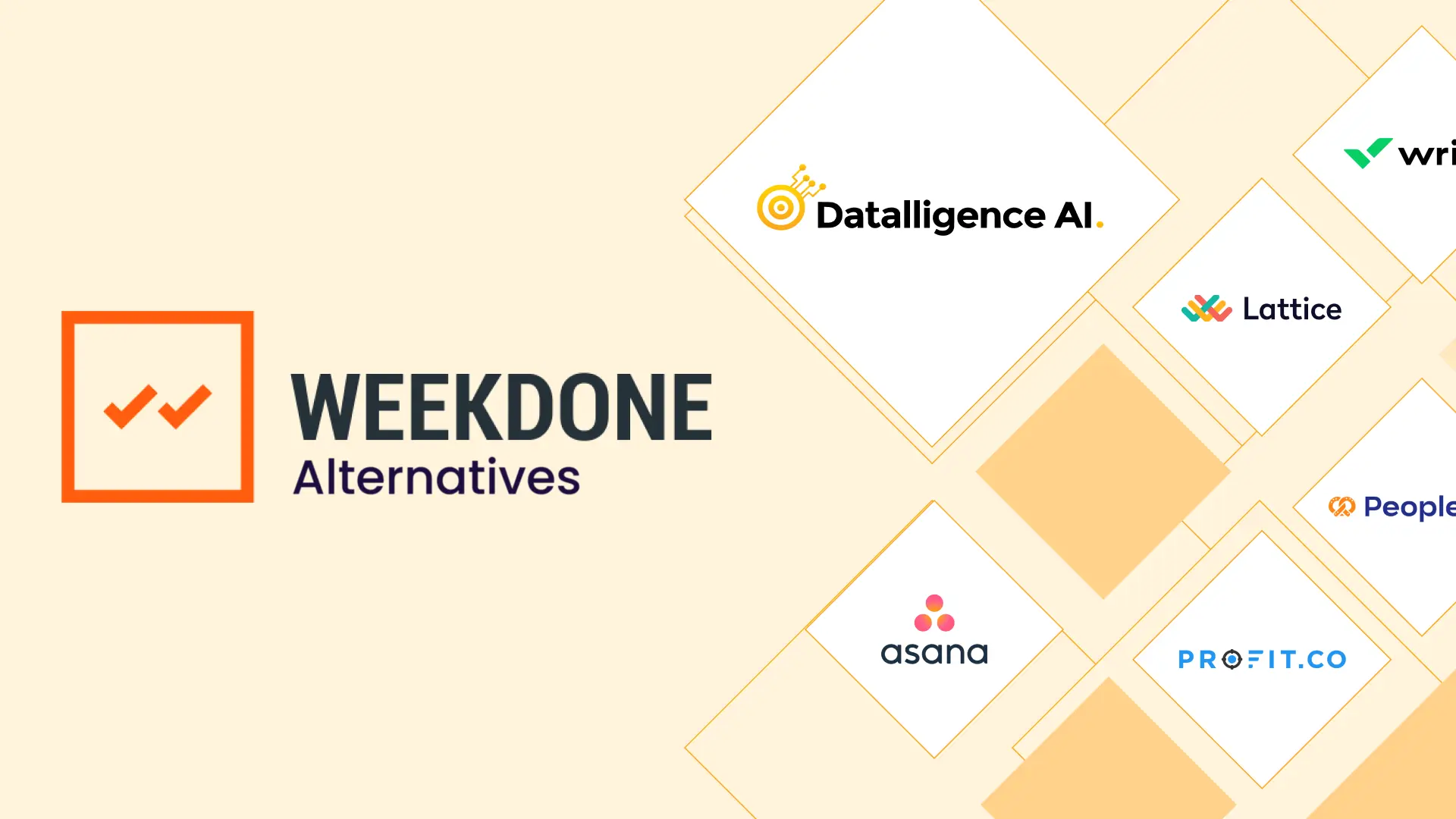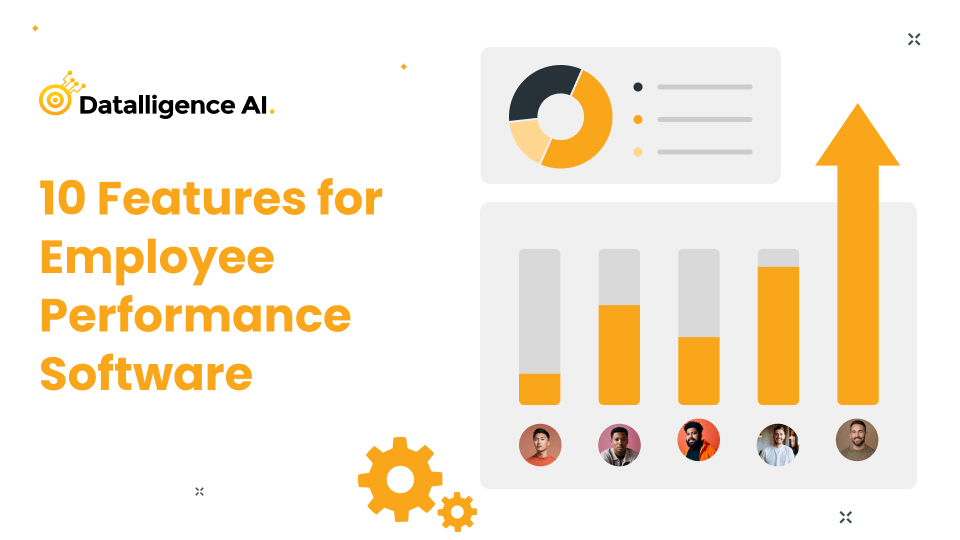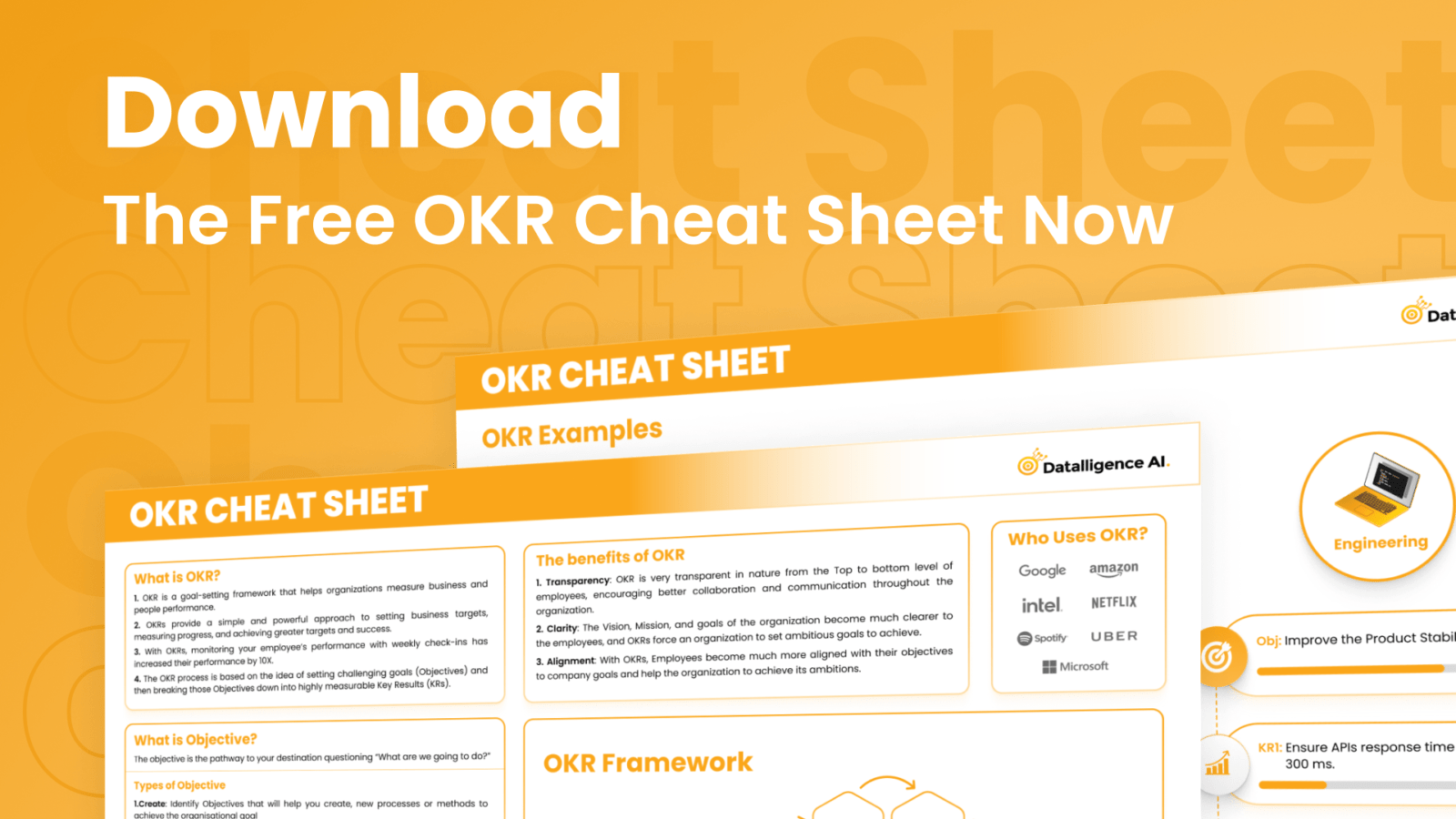Performance evaluations can be challenging for anyone. Even managers experience difficulties.
Organizations are already navigating difficult economic times that have an impact on cycles for performance reviews and compensation. In these situations, managers must alter how they assess employee performance.
If you are facing the same difficulties, You’ve come to the right place if you want to create a better evaluation procedure to make sure employees get what they deserve. This article offers 25 insightful performance review questions as well as a general overview of performance reviews’ advantages and significance.
Prepare yourself to discover novel insights, motivate professional and personal growth, and foster a culture of continuous improvement with us.
What is a Performance Review?
A performance review, also known as a performance appraisal or evaluation, is a systematic process in which an employer assesses an employee’s job performance . It also provides feedback on their achievements, strengths, areas for improvement, and overall contribution to the organization. It is a structured evaluation conducted periodically, typically annually or biannually, although some organizations may have more frequent reviews.
Performance reviews serve several purposes, including:
- Feedback: They provide an opportunity for employers to communicate with employees about their performance, highlighting areas where they excel and areas that need improvement. Constructive feedback helps employees understand expectations and make adjustments.
- Goal Setting: Performance reviews often involve setting objectives and goals for the upcoming period. This allows employees and employers to align their expectations and establish measurable individual or team performance targets.
- Performance Recognition: Reviews may involve recognizing and acknowledging employees’ achievements and successes. This recognition can motivate employees, boost morale, and reinforce positive behavior.
Performance reviews typically involve a two-way discussion between employees and their supervisors or managers. Both parties can share perspectives, exchange ideas, and collaboratively set goals for the future. Effective performance reviews are based on objective criteria and clear performance expectations, providing a fair and transparent evaluation process.
It’s important to note that performance reviews can vary across organizations. The specific format, evaluation criteria, and frequency may differ based on company culture, industry, and individual job roles.
What are good performance review questions?
When conducting a performance review, asking insightful and open-ended questions that encourage reflection, self-assessment, and meaningful discussions is important.
Here are some examples of good performance review questions:
1. What accomplishments or achievements are you most proud of during the review period? Why?
This question allows employees to reflect on their successes and highlights their contributions to the organization. It encourages them to identify their strengths and areas where they excelled.
2. What challenges or obstacles did you encounter, and how did you overcome them?
This question assesses an employee’s problem-solving skills and resilience. It helps uncover their ability to handle adversity and showcases their resourcefulness in finding solutions.
3. What areas of your job do you find most fulfilling? Why?
This question taps into an employee’s job satisfaction and motivation. It provides insights into their passions and interests within their role, helping managers identify opportunities to further engage and leverage their strengths.
4. Are there any specific skills or knowledge areas you would like to develop in the coming year?
This question encourages employees to reflect on their professional growth and development. It opens up a conversation about their aspirations, career goals, and areas where they seek improvement or additional training.
5. How well do you feel your current role aligns with your long-term career objectives?
This question helps assess an employee’s career aspirations and whether their current role aligns with their long-term goals. It encourages discussions around potential career paths and opportunities for advancement within the organization.
6. What support or resources do you need to perform your job more effectively?
This question allows employees to express any challenges they face in their role and identify the support they require. It helps managers understand how to provide the necessary resources, training, or assistance to enhance employee performance.
7. How would you like to contribute to the team or organization in the future?
This question encourages employees to think about their future contributions and the value they can bring to the team or organization. It helps align their aspirations with the overall goals and objectives of the company.
8. How do you prioritize your tasks and manage your time effectively?
This question explores an employee’s organizational and time management skills. It provides insights into their ability to prioritize tasks, meet deadlines, and manage their workload efficiently.
9. How would you describe your working relationship with colleagues and team members?
This question evaluates an employee’s ability to collaborate and work effectively in a team. It uncovers their communication skills, teamwork, and their ability to build positive relationships with others.
10. What suggestions do you have for improving processes or workflows within your department or the organization as a whole?
This question encourages employees to share their ideas for enhancing efficiency, productivity, or effectiveness. It demonstrates that their input is valued and encourages a culture of innovation and continuous improvement.
Why It’s Important to Ask the Right Questions
To get the most out of these conversations, it’s crucial to ask the right annual review questions. The best inquiries are:
Encourage Reflection
Thought-provoking questions encourage staff to consider their successes, difficulties, and potential growth areas. They can establish definite goals for improvement and gain insightful information from this introspection.
Improving communication
Asking thoughtful questions promotes direct and honest communication between managers and staff. They establish a secure environment for the exchange of criticism, the sharing of ideas, and group problem-solving.
Encourage performance enhancement
Managers can find performance gaps, give specific feedback, and create workable improvement plans by asking the right questions. Growth in both individuals and organizations is consequently stimulated.
Top 25 Performance Review Questions You Should Ask
Managers can gain useful insights, promote improvement, and cultivate an excellence culture by conducting efficient performance reviews and asking the appropriate employee evaluation questions during these reviews.
The following list of the top 25 employee review questions has been carefully chosen to support employee growth, align goals, encourage accountability, and maximize organizational success.
Note that the categories have been created to aid in developing a framework for performance evaluation, identifying areas for improvement, and promoting open and fruitful communication between staff members and their superiors.
Category: Goals and Expectations
1. What were the goals and expectations set for me and how did they align with the organization’s objectives?
2. Were there any changes to the goals or expectations during the review period, and why?
3. How well did I meet or exceed the set goals and expectations, and how did my performance contribute to the organization’s success?
Category: Skill Development and Growth
4. What are my strengths and areas for improvement? How can I leverage them to contribute effectively to the team and organization?
5. Which skills or competencies should I prioritize developing in the upcoming review period? Why are they important for my role and growth?
6. Are there any recommended training opportunities or resources to support my professional growth? How can I integrate them into my work responsibilities?
Category: Feedback and Communication
7. How effective was my communication and collaboration with colleagues and stakeholders during the review period, and what contributed to successful outcomes?
8. Are there any specific areas where I can improve my communication or collaboration skills, and what steps can I take to enhance them?
9. Did I provide and receive feedback in a constructive and timely manner? If not, how can I improve in this aspect, and why is effective feedback important for individual and team growth?
Category: Performance and Results
10. Rate the quality and timeliness of my work during this review period, and provide examples of exceptional performance or areas for improvement.
11. Highlight any achievements or contributions to the team/organization’s success during this review period.
12. Identify areas for improvement in my performance and suggest steps to address them, emphasizing their importance.
Category: Career Advancement
13. What are the potential career growth opportunities within the organization that align with my skills and interests, and what steps can I take to pursue them?
14. What steps can I take to enhance my chances of career advancement within the organization, and what skills or experiences are typically valued for higher-level roles?
15. What are the key performance indicators or metrics I should focus on to demonstrate my readiness for the next level, and what can I do to ensure I meet or exceed these expectations?
Category: Work-Life Balance and Well-being
16. What career growth opportunities align with my skills and interests, and how can I pursue them within the organization?
17. How can I enhance my chances of career advancement and what skills or experiences are valued for higher-level roles?
18. What key performance indicators or metrics should I focus on to demonstrate readiness for the next level, and how can I ensure I meet or exceed expectations?
Category: Teamwork and Leadership
19. How did my contributions positively impact the team’s success during this review period? Can you provide specific examples of collaboration with team members?
20. What areas can I improve upon in terms of teamwork and collaboration skills? What steps can I take to enhance these skills?
21. Did I demonstrate any leadership qualities or take on leadership responsibilities during this review period? How can I further develop my leadership skills?
Category: Managerial Relationships
22. How effectively did I manage relationships with my team members during this review period, and what contributed to positive working relationships?
23. What strategies can I adopt to improve my managerial skills and foster stronger relationships with my team members, and why are these strategies important for team cohesion and performance?
24. Did I effectively support and develop my team members during this review period, and how can I enhance their growth and success?
25. What additional resources or training opportunities can I utilize to improve my managerial skills and effectiveness, and how can I integrate them into my professional development plan?
Conclusion
In conclusion, conducting effective performance reviews is crucial for fostering employee growth, improving productivity, and enhancing overall organizational performance. By asking the right questions during these evaluations, employers can gain valuable insights into their employees’ strengths, areas for improvement, and career aspirations.
Datalligence provides a user-friendly interface that simplifies the evaluation process for both employees and managers. It offers customizable evaluation forms and templates, ensuring that the right questions are asked during performance reviews. Talk to our Performance coaches and experts and gain their insights or try Datalligence for free.

